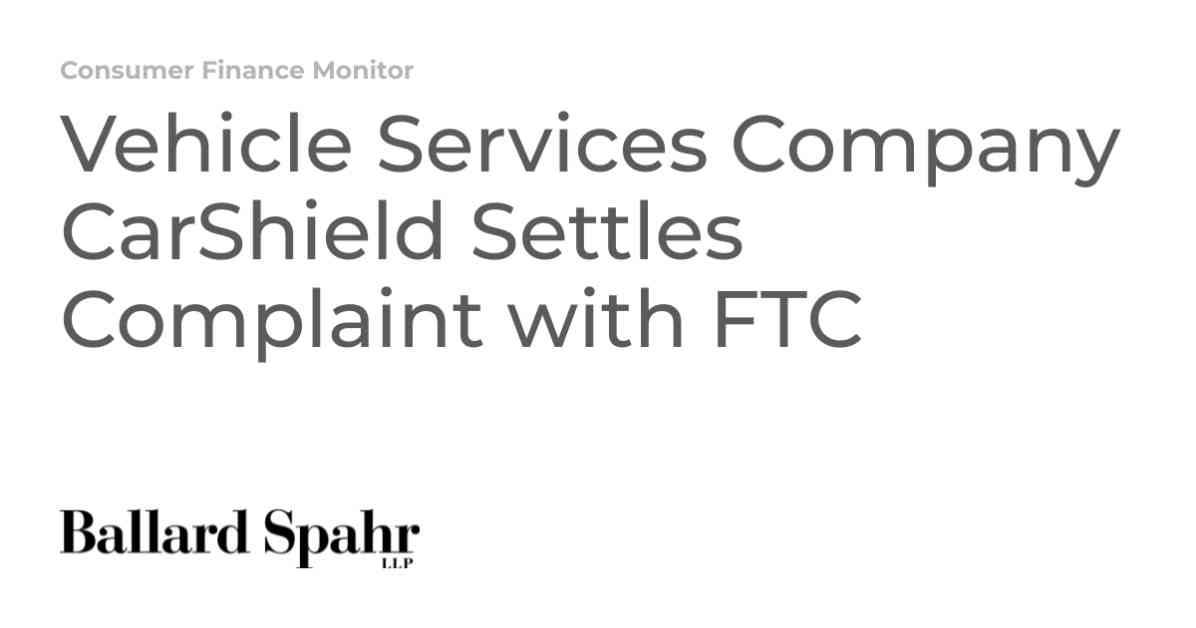CarShield, a company specializing in vehicle service contracts (VSCs), recently settled a complaint with the Federal Trade Commission (FTC) by agreeing to pay $10 million. This settlement comes after the FTC alleged that CarShield’s advertisements and telemarketing practices were deceptive and misled consumers. The $10 million will be used to provide refunds to consumers who were affected by these deceptive practices.
The FTC’s stipulated complaint specifically targeted American Auto Shield (AAS), which designs, provides, and administers VSCs through CarShield. The FTC found that between September 2019 and November 2022, CarShield sold VSCs on behalf of AAS and earned commissions totaling around $600 million. Despite these substantial earnings, many consumers who purchased VSCs from CarShield found that their repairs were not covered, even after making monthly payments of up to $120.
One of the key issues raised by the FTC was the use of celebrity and consumer endorsers in CarShield’s advertisements. These endorsers were accused of making false statements, assuring consumers that purchasing a CarShield service plan would provide them with “peace of mind” and protection from costly vehicle breakdowns. However, the FTC revealed that many of these endorsers were not actual customers of the VSC they were promoting, further adding to the deceptive nature of CarShield’s marketing tactics.
In addition to deceptive advertising, CarShield also utilized telemarketers to sell its plans. These telemarketers used scripted statements provided by the company, including misleading claims such as a “$100 deductible for any covered repair.” However, many consumers found that they were restricted in their choice of repair facilities and did not receive promised benefits like rental cars.
To address these issues, a proposed order has been put forth that would prohibit CarShield from making misrepresentations about the coverage and benefits of its VSCs. The company would also be required to make necessary disclosures and comply with the FTC’s Telemarketing Sales Rule. Moreover, the order would prevent CarShield from misrepresenting any endorser’s experience with the VSCs.
The allegations against CarShield align with the FTC’s stance on add-on products and services that do not provide actual benefits to consumers. The FTC’s Combating Auto Retail Scams Rule (CARS Rule) aims to prevent the sale of such products or services and prohibits misrepresentations related to their costs, limitations, benefits, or other material aspects. Despite legal challenges to the CARS Rule, the FTC’s stance remains firm on addressing unfair or deceptive practices under Section 5 of the FTC Act.
In conclusion, the settlement between CarShield and the FTC sheds light on the importance of transparency and honesty in advertising practices, especially when it comes to financial products like VSCs. Consumers must be able to trust the information presented to them when making decisions about protecting their vehicles. As the regulatory landscape continues to evolve, it is crucial for companies like CarShield to prioritize consumer trust and compliance with established rules and regulations.













